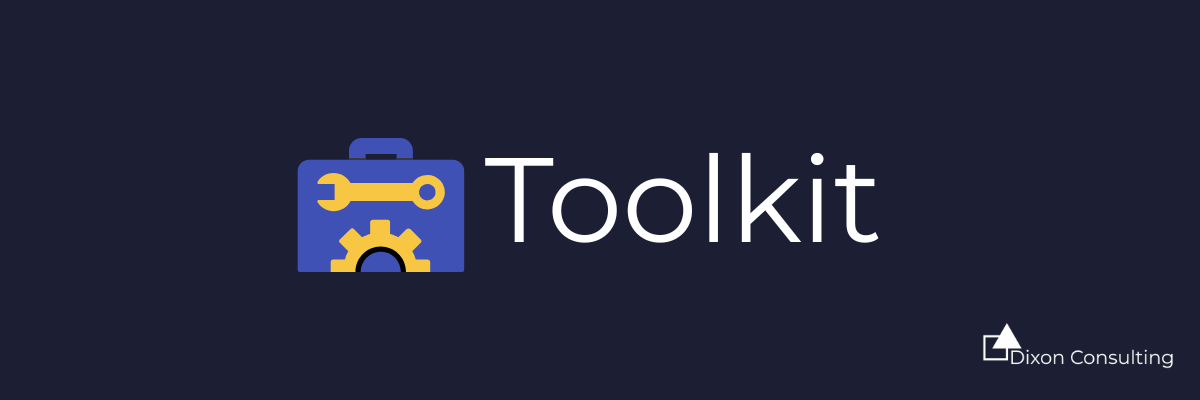- Beyond Work Monthly
- Posts
- Courage Looks Boring
Courage Looks Boring
The bravest thing you did this week probably didn’t make a noise.

Some weeks, courage isn’t a breakthrough. It’s a decision to try again.
To show up when you don’t feel ready. To keep going quietly, without applause.
We don’t often call that bravery. But maybe we should.

Last week, I spoke to someone who felt like they were failing.
They weren’t.
They had just written their first job application in months and admitted to a friend how much they were struggling.
None of it felt powerful. But every bit of it was.
Courage doesn’t always come with a rush of adrenaline.
Sometimes it looks like brushing your teeth, sending the message, and walking into the room.
In very difficult times, maybe that’s all courage is – getting up and brushing your teeth.
Doing one normal thing in a day that feels anything but normal.
We’ve been taught to celebrate bold, decisive action. But there’s another kind of bravery, the slow, steady, and unremarkable kind. The kind that maybe only you see.
And it matters.

3 Simple tools for shifting perspective — gently.
Try one or two of these this week:
1. Name your micro-bravery
What’s one thing you did recently that took emotional effort? Write it down. No disclaimers. No “but it was nothing”.
2. The 3-Minute Self-Check
Sit quietly and ask,
Where did I show up when I could have avoided?
What did I face, even if clumsily?
Let the answer land.
3. Rehearse quiet courage
Choose one small thing you’ve been avoiding. Something that feels just out of reach, like updating your CV, opening your inbox, or calling someone you’ve drifted from.
Now, don’t try to complete it. Just rehearse the first step.
If it’s writing a job application, open the document and type the title.
If it’s calling a friend, write down what you want to say or just find their number.
If it’s checking your bank account, log in……….and breathe.
Set a five-minute timer if that helps. You’re not committing to the whole thing, just showing yourself you can begin.
Quiet courage isn’t about finishing. It’s about returning to what matters, one small step at a time.
→ You can download the PDF Tiny Acts of Bravery journaling tool for free here:


We often imagine courage as a surge, something that wells up inside us and carries us forward.
But the truth is, most meaningful change doesn’t come from a sudden spark. It comes from small, deliberate moves toward what matters, especially when they’re uncomfortable.
In behavioural science, this is captured by the idea of values-based action, choosing behaviours that align with your deeper values, not your passing feelings.
That means courage isn’t the absence of fear. It’s the presence of direction.
You can feel uncertain, tired, flat, or even afraid and still take a step that honours the kind of person you’re trying to be.
Acceptance and Commitment Therapy (ACT) offers a useful reframe:
You don’t need to control how you feel before you act.
You just need to notice what matters, and move gently toward it.
When I was at my lowest, grieving, redundant, and unsure what to rebuild, brushing my teeth felt like a decision. A choice not to disappear completely.
It wasn’t dramatic. But it mattered.
Courage isn’t always visible from the outside.
But inside, it can be the difference between giving up and beginning again.

There is a kind of strength that doesn’t need to be seen.
If you’ve shown up for yourself quietly, without fanfare, that counts.
And maybe it’s already reshaping who you’re becoming. :-)

If you’re navigating a transition or feel stuck in the in-between, my coaching sessions are designed to meet you there gently, clearly, and without pressure. You can book a 15-minute intro call here: https://calendar.app.google/rkUSYjRysGgpmV7V9 Or explore more at www.danieldixon.net |  |
 | How do people stay hopeful during uncertainty? I’m gathering anonymous insights for The Hope Inventory, a short, reflective survey exploring how people navigate instability, rebuild agency, and stay motivated through change. If you’ve experienced job loss, career transition, or prolonged uncertainty, I’d value your perspective. Your responses will help shape a visual report and deeper analysis within my consulting work on human resilience and workplace culture. |

 | The Courage to Be Disliked by Ichiro Kishimi & Fumitake Koga Written as a Socratic dialogue between a philosopher and a young man, this book gently dismantles the idea that we need to earn approval or live by others’ expectations. It’s not always easy reading, but it offers a liberating reframe: you don’t need to be liked to live meaningfully. Ideal if you’re seeking clarity, emotional independence, or the confidence to walk your own path. |
 | Radical Acceptance: Awakening the Love that Heals Fear and Shame by Tara Brach A deeply compassionate book that blends Buddhist psychology with real-life stories of struggle and healing. Brach invites us to stop fighting our imperfection and instead meet ourselves with presence and love, even in pain. One to return to again and again if you’re navigating grief, burnout, or feeling “not enough.” |
Until next time
You don’t have to feel brave to be brave.
Even the smallest act, done with care, done without certainty, is enough.
So if today feels quiet, unremarkable, or hard to measure,
Ask yourself: What did I show up for?
Then let that answer be enough.
Until then, I’m glad you’re here.
Daniel :-)
Reply